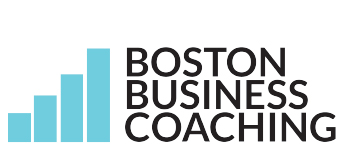
04 Sep How to Be More Productive at Work, Home and School
 Awesome Tips on How to Be More Productive
Awesome Tips on How to Be More Productive
Let’s face it, in the work world these days, in order to keep up with the increased demands from email, voicemail, fax, phone, and in-person meetings, we must have productive work habits so we can keep up with the demands of our job, and move up the career ladder.
The Challenges of People with ADHD and ADD
Because of the number of distractions facing us, and the frequency of our getting distracted, many people think they might have ADD or ADHD. For some of my clients who really do have attention deficit hyperactivity disorder (ADHD), or ADD, just completing one task can be fraught with challenges because of the fact that they get bored more easily, distractions are everywhere, and it is easier to get sidetracked. Whether you have ADHD or not, we must learn to deal with the high number of distractions to our attention which can inundate us by implementing a system for dealing with them.
So how do people with ADD or ADHD and others, remain productive, despite these distractions?
I have put together 13 of the most helpful productivity strategies to manage distractions in the workplace. These strategies can be used at work, at home, and at school if you are a student. I encourage my clients to use these tips to be more productive at work, and in all places, because I believe that good habits should not just be limited to the work and school environment. For these strategies to become good habits, and for these skills to really get adopted; they must be practiced consistently and be incorporated into your everyday life, so they eventually replace any negative, limiting behaviors.
13 Productivity Strategies
1. Take the time to plan
Put aside 15-20 minutes, or more, of time each day to plan the next day. Try to make this the same time each day. Do it when you have the energy and motivation to do this.
2. Minimize Distractions
To do this, work in a location with minimal interruptions.
Turn off your audible phone, email, social media, and other notifications.
Use headphones, earplugs, or a white noise phone appor white noise machine if noise distracts you.
Commit to the task at hand-try not to multitask by finishing what you started before you move onto the next thing.
3. Use a daily/weekly/monthly calendar/planner
Schedule as many activities as possible. Take the time to choose the right calendar/planner for you. Many people with ADHD prefer the hard copy over the digital calendars for the ease of use, and some prefer using their phone and/or computer calendar because they like the alerts, and reminders.
4. Use Visual Aids/Visualization
Use sticky notes (paper or digital), erasable wall calendars, and white boards for action/to do items. Post a picture, or other graphic representation of what the finished product might look like. Display in a visible location, quotes, positive affirmations, or words of encouragement, to motivate you.
5. Use Project Management Software/Tools
Track goals, actions, responsibilities and progress with project management software and apps. These tools also allow you to communicate with others on a project so you can more easily collaborate. A couple examples of highly rated products are Basecampand Microsoft Project.
6. Use a Timer
A timer can help you stick to time limits on tasks, limit time on non-productive activities that get in the way of essential activities, or use it to remind yourself of the beginning or end of appointments.
7. Ask someone to keep you accountable
Many people will achieve things if they have someone to hold them accountable. Find someone who you can report your progress to by email, phone, social media, or text.
8. Do things right away, don’t procrastinate
To those with ADHD and others, procrastination can be a major impediment to productivity. Those who procrastinate, end up pulling all-nighters, or end up missing deadlines, causing undue stress, and perpetuating thoughts of low self esteem.
9. Set realistic goals
You know what is realistic for you, so plan ahead, do not plan to do a major project at one time, in an unrealistic timeframe. Break the project into smaller, achievable steps, and schedule enough time to do each of those. By achieving success with smaller steps you will be inspired by, and build on your progress. One strategy I use with my coaching clients is I ask them to double the time they think it will take them to finish a project. By doing so, most people report that doing so has dramatically increased their success in finishing projects on time, and many report finishing before their due dates.
10. Reduce clutter/get organized
By taking the time to organize/categorize smarter, you can avoid wasting time looking for things. Rethink how you organize you hard copy and digital files. Ask someone whom you admire for their organization, or a coach who specializes in organizing to help you if you lack skills in this area.
11. Get perfectionism under control
Perfectionism is problem for people with ADHD and others so set some limits on the time you have to devote to each project, as well as a due date for the project tasks. Allow yourself only one revision period of 1 hour in duration, within 48 hours, after the completion date/time is up. That’s it.
12. Reward yourself for success
Use whatever motivates you to encourage success and to celebrate accomplishments. Some people use food as a reinforcer, a movie, travel, a book; use whatever works for you.
13. Reschedule tasks instead of putting them off without a date
To avoid missing deadlines and appointments, if you are not able to get a scheduled task done, or need to change an appointment for reasons other than procrastination, or perfectionism, reschedule it for another time(if time allows) rather than leaving the date open.
By taking the time to incorporate some of these strategies into your daily routine, or replace problem, non-productive behaviors and habits with some of these positive strategies, you can truly transform your life. By incorporating these productivity tips into all areas of your life, you can minimize distractions, which will increase your productivity, reduce your stress, and help you gain more control of your time, allowing you to better manage all areas of your life.
If you found like article helpful please share it using the “Tweet” or “Like” it buttons below.




 Awesome Tips on How to Be More Productive
Awesome Tips on How to Be More Productive